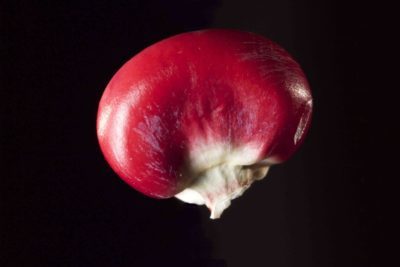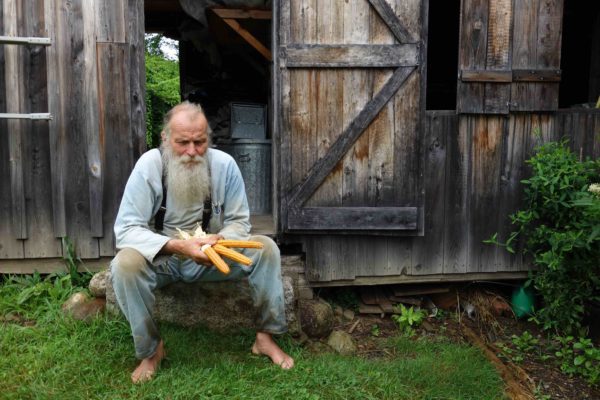INTERVIEW: Communities honor traditions, protect seeds in new documentary

Seed: The Untold Story is the final chapter in a trilogy of eco-documentaries that look at some of the challenges planet Earth needs to overcome in the 21st century. The journey began with The Real Dirt on Farmer John and continued with Queen of the Sun: What Are the Bees Telling Us?, both directed by Taggart Siegel and produced by Jon Betz. The new film, Seed: The Untold Story, is co-directed by both Siegel and Betz and explores the contentious future of the global seed market and the David-vs.-Goliath efforts of some farmers to protect the legacy of 12,000 years of seed cultivation.
Siegel and Betz’s films have an obvious connection to nature and food, and each time they make a documentary together, they learn about some new side of the ever-changing environmental narrative.
“It really started years ago,” Siegel said of Seed’s genesis. “It started with The Real Dirt on Farmer John, which was about in 2005, and that’s all about a farmer that loses his family farm. And against all odds, he gets it back. It was a documentary. It really brought in the grassroots world and was watched theatrically, and then the next film was Queen of the Sun: What Are the Bees Telling Us? about the mysterious colony collapse disorder that’s ravaging our honey bees around the world.”
The turning point for Seed: The Untold Story came when the directors read a National Geographic report on how many vegetable seed varieties had disappeared in the last century. “It was just like, oh my God,” Siegel said. “This is devastating to hear that our seed varieties had disappeared, and I had no idea. … This is one of the most important things for us to save in order to get through climate change and all the devastations in the world, so it was a wakeup call. And immediately we got into making a film. We said, ‘Done. Let’s make this film about seeds because very few people know about it.'”
Betz said that the concept of seed savers, people who store away rare seeds, has not entered the public consciousness yet. However, after exploring the issue, the filmmakers were fascinated by the story of seed banks, Native Americans revering seeds as a cultural and spiritual tradition, and farmers trying — sometimes desperately — to save what they can before time runs out. There are eerie scenes in Seed: The Untold Story that will make viewers think of Doomsday Preppers. Betz called the practices of the seed savers the need to “back up” the planet, almost as if these seed banks are external hard drives holding the Earth’s secrets.
“It’s kind of insane on one level, but it’s also the reality,” Betz said. “The way that our seed system is built now and our food system is built is dramatically different than it was a century ago. … So we’re in a unique place where farmers not very long ago, our great-grandparents, saved seeds from year to year, and then starting around the 1920s, suppliers began to buy hybrid seeds. … So instead of saving seeds from year to year, farmers began to purchase them, so this obviously is a storyline that unfolds in the film to help us understand where we’re at now, where we’re reliant on really a very sort of underdog culture of seed savers and a lot of, to be honest, some very underfunded seed programs and seed banks that really rely on the power of individual people to support this process.”
Both Betz and Siegel are hoping the film will inspire people to become more invested in farming culture and food options. Betz wants the viewer to appreciate the concept of a seed library, where one heads to a public place, checks out seeds (almost like books) and helps future generations. “That’s just a model that is going to help restore a future where we have control of our food system instead of being reliant on a handful of chemical companies,” Betz said.
Seed: The Untold Story, which uses beautiful macrophotography to showcase the different varieties of seeds available, attempts to be both educational and entertaining. The filmmakers understand the fine line between keeping one’s interest and calling the viewer to action.
“It’s always really important to entertain an audience, and so when we interview some of these characters, these very powerful characters, because many of them have not been filmed before, and it’s like discovering a variety of seeds that you’ve never seen before,” Siegel said. “These people have been saving them for 20, 30, 40, 50 years, all these different varieties, and it’s incredible because some of them actually are saying things like, ‘I’m Noah, not God. I’m here to save all the varieties of seeds, so there’s not a devastation of these seeds.’ … And [one character] has a great sense of humor, so he entertains people because he talks about seed saving is all about sex, things like that. So he’s very entertaining, but then we go to the Native Americans, the Hopi, and he’s talking about his seeds on a very spiritual level and saying, ‘These are my children.'”

For the Native Americans in the film, the seeds have been passed down for thousands of years, and there’s an obvious spiritual element to the farming and protecting. Seed proves to be a film wrapped in entertainment, spirituality and beauty.
“We not only entertain people but show the magnificence beauty of a seed, and that’s why we use that macrophotography,” Siegel said. “And we show a seed in this pure architecture and run light across it so it looks almost like a planet. We blow that up to a 30-foot screen, and you’re like, ‘Oh my God. Look at these seeds.’ They’re just magnificent, and so that’s part of making sure that the film really gets into people’s hearts and minds. So it’s not just an investigation against the chemical corporations.”
Betz and Siegel try to connect the dots on why so many seed varieties are facing a perilous future. This is where the David vs. Goliath theme is evident. The independent farmers and seed savers are on one side, while on the other side are a handful of chemical companies and the changes that have occurred over the past 100 years. Seed explores several topics, everything from Monsanto to genetic modification to industrial agriculture to patent infringement. Some of the sources they use include world-renowned primatologist Jane Goodall, environmentalist Vandana Shiva, Center for Food Safety’s Andrew Kimbrell and Tyrone Hayes, professor at University of California-Berkeley.
Seed: The Untold Story, which is currently playing in New York City and opens in Los Angeles on Sept. 30, is meant to be a vehicle to raise awareness, according to Betz. “I love going to see films that entertain my socks off but also change my paradigm, change the way I’m literally connected to something,” Betz said. “If I walk out of a movie that’s about an endangered species, I want to feel not just that I know all the problems. I want to be in love with that animal. As a filmmaker, it’s really important because when you walk out of the theater, you forget 90 percent of the facts that were told you, but you walk away with a feeling, a connection that drives the way you work on this Earth as you move forward.”
The feeling that Betz would like the audience to take away is a caring about seeds, a caring about food and a caring about where food comes from. He also would love to see audience members feel a connection with the cultures and people who have championed this food for thousands of years.
“I think that was really important for us was to have that emotional connection,” Betz said. “We’ll carry out a two-year outreach campaign in association with the film to create impact on the issues, so we’re working with national partner organizations that are training more people into becoming seed savers themselves. As wild and crazy as that might seem, it’s actually quite simple to save some seeds from your home garden, and I think those acts as well as the more political acts and the advocacy we can do is all important to us as filmmakers. So, yes, in a way there’s an activist strain there, but we’re also storytellers. And we want people to walk away feeling that they’ve got something that’s kind of in their heart at the end of the day.”
By John Soltes / Publisher / John@HollywoodSoapbox.com
Seed: The Untold Story is currently playing in movie theaters. Click here for more information.

